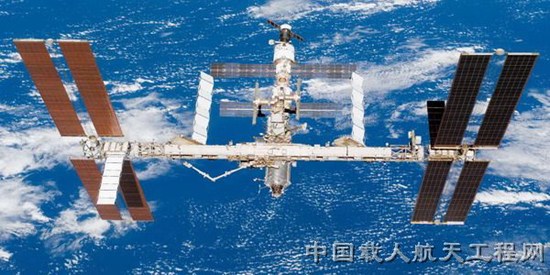|

|
| File photo: the International Space Station |
Many of the advances in space exploration would never have been made had it not been for the Cold War between the US and the Soviet Union. Between 1957 and 1975, space was a crucial arena in their rivalry -- but as that stand-off came to an end, space became more of a platform for international cooperation.
On October 4, 1957, the Soviet Union stunned the world by launching the first satellite, Sputnik, into space. That started the space race with the United States.
On April 12, 1961, Russian cosmonaut Yuri Gagarin became the first human in space, making a 108-minute orbital flight in his Vostok 1 spacecraft.
The USSR space program struck first, but the US space program was able to pull ahead in the long run. The US was the first nation to put a man on the Moon. Neil Armstrong's one step on the moon was one giant leap for mankind.
Before a watchful world, the two nations sought to demonstrate their impressive feats in rocketry and spaceflight. The race was seen as necessary for national security and symbolic of technological and ideological superiority.
But it was also massively expensive. In 1975, the two sides shared resources, cooperating in the Apollo-Soyuz Test Project human spaceflight mission. And they continued to work together after the Cold War.
The American space shuttle and Russian Mir space station often carried out united missions and contributed to the International Space Station.
International cooperation became inevitable, as more and more powers, like Europe, Japan and China, rose in space exploitation.
China's successfully launched the Beidou navigation satellites, Chang'e lunar orbiters, and Shenzhou manned spacecraft. And the country has always carried out effective cooperation with astronauts and space agencies of other countries around the world.
The first test satellite of Europe's Galileo navigation system, which blasted off at the end of 2005, has sped up space research cooperation between China and Europe.
Astronauts of China's Shenzhou-7 spacecraft have worn the Russian space suits during the first ever space walk.
And China has shared some medical indicators and testing data with France during Shenzhou-7's space flight.
The active collaborations between various countries have boosted the advancement of the space exploration. In the past, countries competed to get to space because it was unconquered territory, but today, competition has been replaced by cooperation. And all countries are treating space as the common wealth of all mankind.

